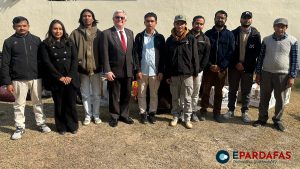
Thriving Beyond Borders in a Modern World

In today’s interconnected world, the notion of being bound by geography has become increasingly outdated. With advancements in technology and the rise of global mobility, people are no longer confined to their birthplaces or even their home countries. Instead, they are empowered to seek out and thrive in locations where life is easier and opportunities are abundant.
The concept of geographical freedom is reshaping our societies. In the past, one’s place of birth often dictated their life’s trajectory. Access to education, healthcare, employment, and a stable environment were all heavily influenced by geographic location. However, the digital age has dismantled these barriers, allowing individuals to transcend borders and establish roots in places that offer a better quality of life.
Take, for example, the rise of digital nomads—individuals who leverage technology to work remotely from any corner of the globe. This lifestyle choice highlights the growing trend of people prioritizing lifestyle and well-being over traditional geographic ties. Cities like Bali, Chiang Mai, and Lisbon have become hotspots for these modern workers, drawn by affordable living costs, vibrant cultures, and robust digital infrastructures.
Moreover, global migration patterns are increasingly influenced by quality of life metrics. Countries with strong economies, political stability, and inclusive social policies attract talent and investment from across the world. This dynamic is evident in the influx of skilled professionals to nations like Canada, Australia, and Germany, where opportunities for personal and professional growth abound.
However, this newfound freedom is not without challenges. It raises questions about identity, cultural integration, and the sustainability of local resources. As people move in search of better lives, they must navigate the complexities of blending into new communities while preserving their unique cultural heritage. Additionally, host nations must balance the benefits of attracting global talent with the need to support and integrate newcomers effectively.
In this evolving landscape, governments and policymakers must adapt to facilitate the movement of people while ensuring that the benefits are shared equitably. This includes creating inclusive policies that promote diversity, investing in infrastructure to support growing populations, and fostering environments where both locals and newcomers can thrive.
Ultimately, the ability to thrive where life is easier is a testament to human adaptability and resilience. It underscores the importance of creating inclusive, supportive, and sustainable environments that cater to the needs of all residents, regardless of their origin. In a world where geographic constraints are diminishing, the focus must shift towards building communities that welcome and nurture the aspirations of a global citizenry.












Comments